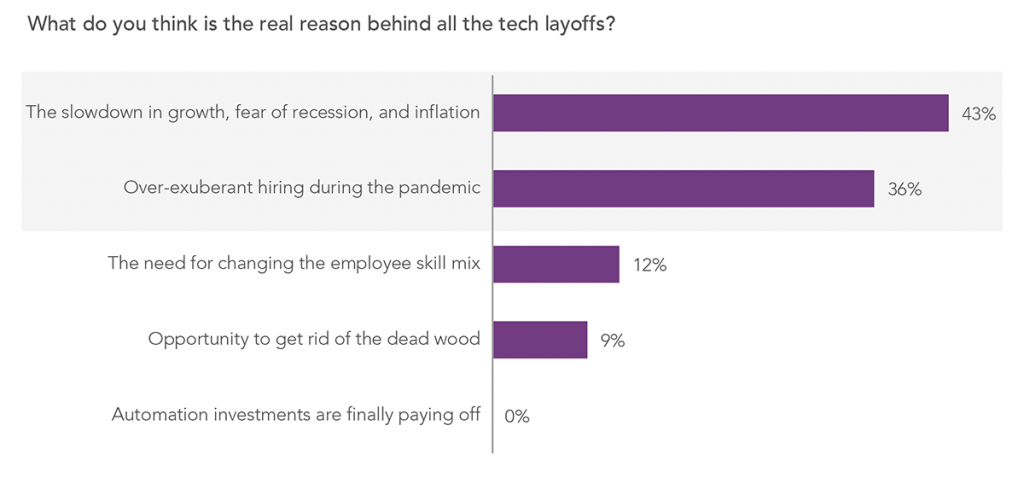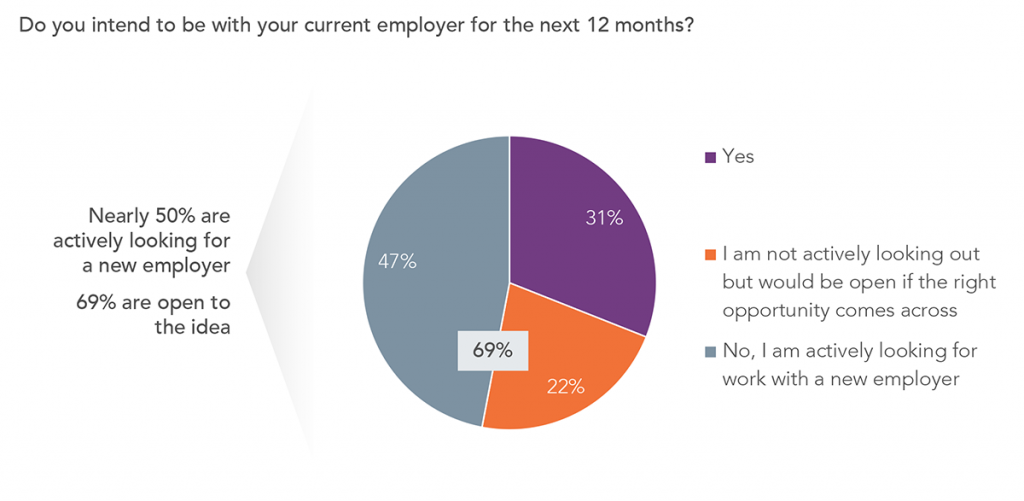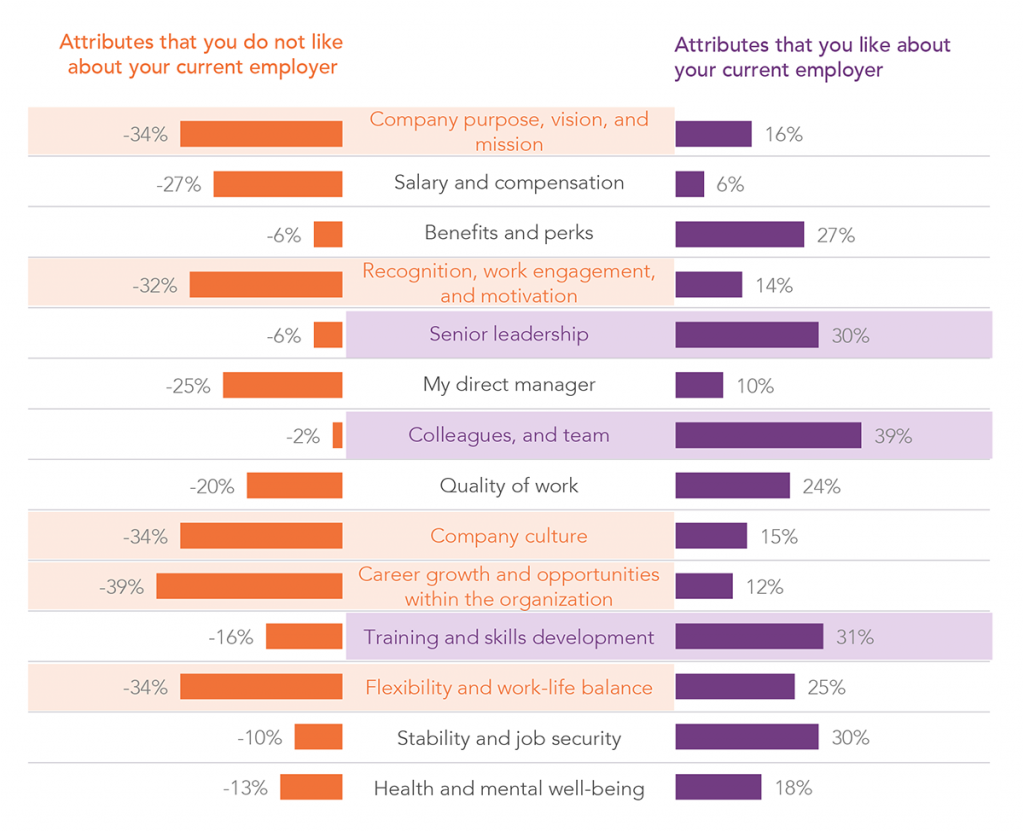
The Great Resignation may be in the rear-view mirror, but despite an economic downturn and alarming tech company layoffs, we are still facing a talent crunch amid the new challenges of handling the often-competing demands of employees and employers in hybrid working. Management needs to be empathetic, build connections with their employees, and understand and respond to their desire for empowerment, purpose, and social connection.
During a panel discussion at HFS’ London Horizons Summit, 2023, Phil Fersht (CEO and Chief Analyst, HFS Research), Srikanth Iyengar (CEO – Workforce Development, upGrad), Roger Lvin (President and Board Member, Hitachi Vantara), Irene Sandler (VP Global Marketing Strategy and Portfolio Marketing, Cognizant), Andrew Warner (Chief Marketing Officer, Brand Pharmacists), Leslie Willcocks (Professor, London School of Economics and Political Science), and Saurabh Gupta (President, Research and Advisory Services, HFS Research) discussed the importance of employee experience in a hybrid world.

While the primary reasons behind recent layoffs are a slowdown in growth, fear of recession, and inflation, the over-exuberant hiring during the COVID-19 pandemic is not far behind (see Exhibit 2). Even if, as Phil Fersht pointed out, the current round of layoffs accounted for only 10% of the numbers recruited during the pandemic, the fact they are widely publicized and at large scale creates a climate in which employees feel less loyal.
Roger Lvin pointed out that some employers got emotional about employees they had supported throughout the pandemic who then quit their jobs. Some employees feel bosses are out of touch. Nevertheless, employers need to know while economic headwinds mean the pendulum has swung back toward them, the talent crunch remains real. In today’s swiftly changing technology landscape, employers must work to build empathy with their teams to retain top talent.

Sample: N=42, 2023 HFS Research London Horizons Summit
Source: HFS Research, 2023
With the work-from-home model in effect for a significant duration during the COVID-pandemic, followed by a continuing hybrid working model, employees seem to have lost connection with the purpose of their organizations. An HFS survey of 1,800 IT and business services employees found 47% were actively looking for a new job (see Exhibit 3). Phil referenced a recent survey that showed “purpose” had plummeted to the bottom of the list for employee motivation. That, as he pointed out, suggested they cared little about who they worked for; nearly 22% were just timeserving until a better offer came along.
Phil added that employees with “I couldn’t care less” attitudes and those less visible through remote working were likely to bear the brunt of layoffs. Roger Lvin, however, warned that impacted employees would remember and share their experiences, resulting in employer brand damage. Lvin says we must improve communication.

Sample: 2022 survey of 1,800 employees across leading IT and business service providers
Source: HFS Research, 2023
Professor Willcocks called out six tools to develop an engaging relationship between employee and employer, with purpose at the top of that list, complemented with mastery and competence, learning experience, social recognition, fair reward, and a degree of autonomy. HFS concurs with his thoughts as many employees have started disliking employers’ neglect on these fronts (see Exhibit 4).
Srikanth Iyengar, too, underscored the idea that employees must learn the skills of tomorrow to stay relevant. Irene Sandler further added that it’s about more than skills; it’s also about building a culture, for which employees need to be in the same room. Andrew Warner emphasized that leaders must empower employees rather than supervise them.

Sample: 2022 survey of 1,800 employees across leading IT and business service providers
Source: HFS Research, 2023
The message from the panel was that employees are anxious. And so are managers. Hybrid working brings with it demands for higher-quality person-to-person skills, and not every old-school manager is cut out to handle the change. To ensure they aren’t left behind, managers must get close to the needs of their teams and respond with the kind of tools outlined by Professor Willcocks.
Register now for immediate access of HFS' research, data and forward looking trends.
Get StartedIf you don't have an account, Register here |
Register now for immediate access of HFS' research, data and forward looking trends.
Get Started